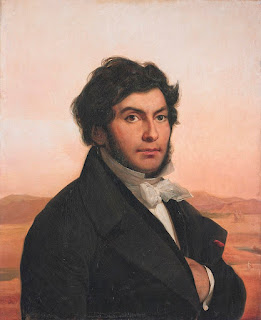Jean-François Champollion: The Man Who Deciphered the Rosetta Stone
In the bustling streets of 19th-century Paris, a young scholar named Jean-François Champollion embarked on a quest that would take him on a thrilling adventure through the annals of history. Born in Figeac, France, in 1790, Champollion possessed an insatiable curiosity for languages and ancient mysteries.
As a child, he would spend hours poring over books and manuscripts, dreaming of deciphering the secrets of the past. Little did he know that his destiny lay hidden in the sands of Egypt.
One fateful day, while exploring the dusty corridors of the Louvre, Champollion stumbled upon the Rosetta Stone. It was a slab of black basalt, covered in inscriptions in three scripts: Greek, demotic, and enigmatic hieroglyphs. The stone seemed to whisper promises of untold adventures.
Champollion was determined to decipher the hieroglyphs, a task that had puzzled scholars for centuries. With relentless dedication, he immersed himself in studying languages and ancient history. He scoured libraries, amassed a collection of ancient texts, and engaged in countless debates with his contemporaries.
His quest for knowledge led him to distant lands. He traveled to Italy, where he examined the writings of ancient Romans fascinated by Egypt. He ventured into linguistics, dissecting the structure of languages and delving into the grammar of ancient Egyptian.
Champollion's journey was not without peril. He faced opposition from skeptics who doubted his ability to unlock the secrets of hieroglyphs. Yet, he pressed on, driven by an indomitable spirit and an unyielding belief in the power of knowledge.
Years of toil and sleepless nights bore fruit. In 1822, Champollion made the breakthrough he had longed for. He realized that hieroglyphs were a combination of ideograms and phonetic symbols, a key to unlocking their meaning. The Rosetta Stone had yielded its secrets, and the world of ancient Egypt was laid bare before him.
His achievement resonated across continents. Scholars and archaeologists now had the tools to decipher inscriptions on tombs, temples, and papyri. The lost world of the pharaohs, with its majestic pyramids and enigmatic Sphinx, came alive in vivid detail.
Champollion's adventurous pursuit of knowledge had a profound impact on mankind. It opened a gateway to the past, allowing us to explore the mysteries of an ancient civilization that had fascinated the world for millennia. His legacy lives on in Egyptology, inspiring generations to seek knowledge, unravel secrets, and embark on daring adventures in the pursuit of truth.



Comments
Post a Comment